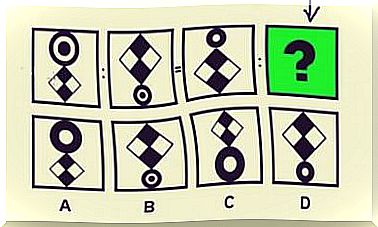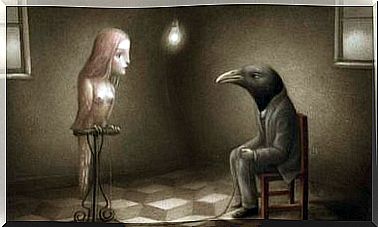Choose Your Partner By Desire Or By Need

When you want to choose a partner, you have to be ready to “seek to find”. It may seem obvious. However, many people actually do the opposite. They find a partner without really thinking their decision. Fears, immaturity, fear of making commitments and many other reasons cause many people to overlook the essential step of choosing at times.
Thus, it is important that it is the desire for a couple that guides our choices and not just the imperative need to have a partner. Indeed, the desperate and blind search for the other is often the result of the difficulty of being with oneself in loneliness. It may also be a need to fill a void.

Personal loneliness
Personal loneliness often seems to be at the origin of the hasty choice of partner. However, this is rarely a good place to start.
Being alone is generally associated with a feeling of worthlessness, rejection, marginalization or even abandonment. Loneliness is thus often linked to sadness, anxiety and depression.
This way of thinking is found throughout history. From that precept of the Bible that says “it is not good that a man is alone” to popular romantic songs. Loneliness is frowned upon, not only by those who practice it, but also socially.
Since loneliness has such a negative connotation, who could want to be in this situation? However, there is no such thing as absolute loneliness. You can even be alone with someone.
Lack of partner
The lack of a partner is one of the most difficult solitudes to face. This type of loneliness generates and stirs up many childhood-related disabilities.
The environment
To this situation must be added the pressure of the environment. Over the years, the environment tends to remind a single person that they are not married and not even in a relationship. That she has no family or children. In short, there are many reasons that make him feel unfit or even useless.
It is all the harder for her when most of her friends are married and the women around them are slowly getting pregnant. It’s like a mirror that reminds her of what she wants but doesn’t have.
This type of situation further reinforces the tragic aspect of loneliness. Moreover, it shakes up self-esteem because it confronts the person with his lack and with what he does not have… The situation can then appear as hopeless and unbearable in the eyes of the person alone. She is therefore tempted to want to escape this loneliness as a matter of urgency.
Choose your partner to escape loneliness
However, this desire to escape loneliness at all costs sometimes leads to choosing his partner so that he fills this lack, this loneliness with oneself. The chosen partner can then turn out to be a ghost. The product of ideal projections, where the other is not really the other. It is only a reflection of the needs of the person who can no longer bear to be alone.
Therefore, the need shows a lack. However, not having a partner does not necessarily imply a situation of deficiency. In general, people with deficiencies build dependency relationships because they cannot live with themselves. They thus seek in their partner something in return. In addition, they also seek to fill their personal devaluation by the recognition of the other.
It is important to note that the need generates anxiety. Therefore, this results in excess. Thus, to save oneself from drowning, this fear of loneliness, lack of recognition and worthlessness, it often happens that one chooses a partner who does not correspond to the idea that one has of the relationship.
Choosing your partner out of need: what does this imply?
When choices are made out of necessity, they are desperate choices. The person finds himself in an inferior position because he is in a situation of dependence on the other. Indeed, it seeks a certain valuation through the other. It is one of the traps of bad love and it constitutes one of the foundations of what is called conjugal alienation.
These desperate choice situations lead to self-fulfilling prophecies. We try so hard not to be alone anymore that we come to choose to be alone again. Indeed, these couples have a limited lifespan. In the end, we only reinforce the initial loneliness.

The other loneliness
However, there is another kind of loneliness. A loneliness which is not a shameful term, but rather a shield of his self-esteem. This loneliness allows you to be well and to enjoy the time with yourself.
Thus, a person who has high self-esteem is interdependent. Not having a partner makes her a person who wants to share her precious time with others. It is not driven by anxiety or hopelessness. Indeed, she appreciates her time and respects herself.
Achieving this type of mindset in life is taking care of your personal time. For example, when accepting an invitation or when considering who is worthy of sharing time with us. Indeed, when we are good with ourselves, we appreciate and value our personal time.
This way the person usually becomes more strict and selective because they don’t want to be wasting their time. It is precious! It’s also not about being on the defensive, but rather exercising rational caution.
In the end, the first couple and maybe even the best of couples is loneliness. It is a sine qua non passage condition to be able to be in a functional relationship later on.
Loneliness as a starting point
It is therefore clear that the fact of accepting and enjoying your solitude is a starting point for a good choice of partner afterwards. It is also the possibility of being careful in the choice of the partner at a given moment in his life.
However, extreme caution can also lead to a defensive stance which makes the person overly demanding in their search. In fact, it takes little to go from cautious defense to relationship phobia. We then run the risk of returning to solitude. Indeed, loneliness + caution + defense + phobia = loneliness.
Choose your partner by desire
Choosing while listening to one’s desires in an adult, mature way and without neurotic visions allows us to select one’s partner from the observation of the qualities and faults of the other. Remember that it is not about qualities and faults for oneself but for the construction of the person.
Choosing from your desires implies accepting your own loneliness. If I am well with myself in my free time, I must choose well in order to share this valuable time with a partner.
Without wishing to pass judgment, we can therefore say that in order to form a dysfunctional couple and sink into bad love, you have to choose your partner out of necessity. It is obviously not the same thing to want a partner and to desperately need a partner. It is also not the same to be a person “in want of” and a person “in need of”.
Let’s use an analogy for a moment. The need would be like spending 3 days without eating seated in a restaurant. Desperation prompts us to eat whatever is nearby. For example, the bread that the waiter has just brought to us. We don’t wait to see the menu. Even if we see it, we order the most quickly served dish. On the other hand, when we go to a restaurant for dinner, we order the drink we want and we choose from the menu what we like the most.
Although this does not always guarantee a good choice, feeling good about yourself and being alone allows you to approach a free relationship from desire. It is a question of establishing a choice on the basis of a rational, balanced logic and without any form of haste.
Choosing your partner by idealization
Choosing a partner means choosing between two ways of seeing it. Either we idealize the person, and we only observe his qualities (which I select or that I attribute to the other), or we observe the real person with his qualities and his faults.
It should be noted, however, that in any couple process, the first period of the relationship corresponds to an idealization of the bond. It is during the following period that reality can find its place. However, this does not always happen because such a thing assumes being able to see the couple in their entirety (with each other’s good and bad qualities).
Thus, to move from idealization to reality, it is necessary to accept and internally negotiate the negative aspects of the partner (qualities + faults = real human being).
The person who has personal deficiencies projects their emptiness out of necessity. She seeks a savior and builds an idealized being who does not exist. What happens is that the person in need only connects with the parts of the other who provide them with the elements they seek to fill.
She only sees what she wants to see and cuts herself off from the rest. She thus denies the parts that she displeases in the other and adds to them imaginary qualities that allow her to shape an ideal with which she begins to connect.
Reality
The one who wishes to have a partner, with all his subjectivity, is in fact more objective in his choice. He sees the other as a whole. He is more critical, he is also clearer about who he is and what the other person is. So the other is also more real.
It is obvious that in order to fall in love, the person who is attentive to the balance between qualities and faults must focus on the qualities. This will facilitate the success of the romantic relationship. Although it is not uncommon for some to fall in love with people whose faults exceed their qualities. They are then dealing with intense or even extreme relationships.
Those who are idealized actually fall in love with a ghost constructed from models of personal needs. They even quickly find themselves frustrated when the returns obtained do not match their expectations. They often unload their discomfort on their partner.
These are people who actually suffer because they sink into the utopia of trying to adapt the other to their own desires. They want to build it to their personal measure, without realizing who the other really is. On the other hand, the other feels definitely belittled because of what his spouse demands of him. That is to say to be someone that he is not.
Conclusion
As we have seen, a romantic relationship can turn into a couple relationship. For this, we must move from idealized love (falling in love) to real love (accepting the other as he is). This passage to the acceptance of the reality of the other is necessary for the survival of the couple. The partners agree in silence. They gradually learn to appreciate the qualities of the other and to tolerate his faults.










